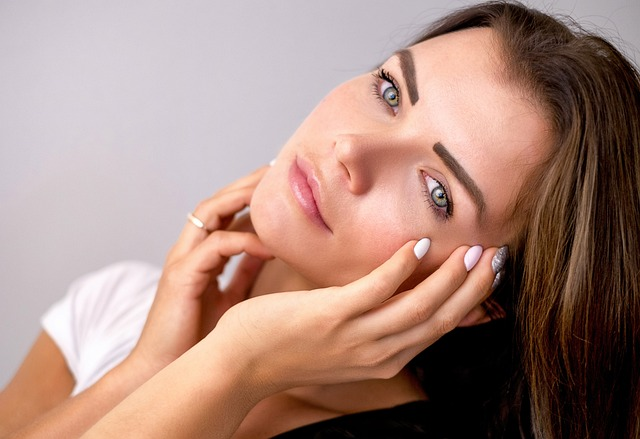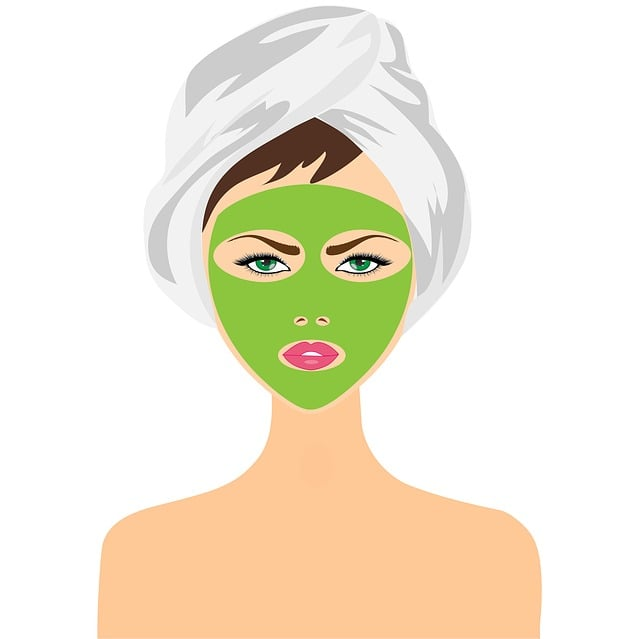What are dark spots on the face and do they go away naturally?

The journey towards a flawless complexion is universal, and everyone dreads the appearance of dark spots on their face. These spots, often attributed to aging, sun exposure, and other factors, can compromise the clarity of our skin.
Many look for answers within the sphere of natural remedies, Shankara Naturals products, especially in time-tested systems like Ayurveda.

Understanding Dark Spots in Depth
Hyperpigmentation, commonly referred to as dark spots, manifests as patches in skin tone or spots on the skin that are darker than the surrounding skin.
These dark spots aren’t usually harmful, but many people find skin discoloration is bothersome due to the cosmetic concerns they raise.
The increased production of melanin, the pigment responsible for skin, hair, and eye color, leads to the appearance of these spots.
Let's delve deeper into the primary causes:
-
Excessive Sun Exposure: The skin's primary defense against the damaging effects of the sun is the production of melanin. Ultraviolet (UV) rays are particularly adept at stimulating melanin production. Over prolonged exposure without adequate protection, this protective mechanism can go into overdrive, leading to an accumulation of dark patches in certain areas. The result is what we commonly term as sunspots, dark spots, liver spots, or age spots. They frequently appear on areas most exposed to the sun, such as the face, back of the hands, chest, and shoulders. It's crucial to understand that while they might develop with age, they aren’t caused by aging but by sun exposure.
-
Hormonal Changes: Melasma is another form of hyperpigmentation or causing dark spots. It's characterized by brown to gray-brown patches on the face. Big hormonal changes, including during pregnancy or when using birth control pills, can trigger this condition. The estrogen and progesterone hormones stimulate the melanocytes, leading to an overproduction of melanin, especially when the skin is exposed to the sun. Although commonly associated with pregnancy, melasma can affect anyone, especially women.
-
Inflammation: When the skin undergoes trauma or inflammation, it can sometimes respond by producing more melanin, leading to post-inflammatory hyperpigmentation (PIH). Acne is a prime example, but other triggers can include eczema, psoriasis, or any condition associated with inflammation. PIH can affect any skin type but tends to be more prominent in darker skin tones. The spots will appear in areas where the inflammation or injury occurred and can range in color from pink to red, brown, or black, depending on the individual's skin type and tone.
-
Aging: With age, the skin undergoes several changes. One of these changes is the uneven production of melanin. The skin might produce melanin in clusters or not distribute it evenly, leading to the appearance of dark spots. Moreover, with age, the skin's ability to recover from sun damage diminishes, making it more susceptible to the lasting effects of direct sunlight.

Understanding the nuances of dark spots is essential, especially in today's world, where clear and even-toned skin is often desired. Recognizing the causes behind hyperpigmentation can inform prevention and treatment methods, helping individuals make informed skincare choices.
Natural Healing of Dark Spots on face
In some cases, dark spots might fade on their own. Sunspots may lighten during periods of limited sun exposure, and post-inflammatory hyperpigmentation often decreases over time.
However, certain spots, especially those caused by age or continuous sun exposure, may be more persistent.
Delving Deeper into Ayurvedic Principles and Dark Spots
Ayurveda has been India's primary healthcare system for decades and it provides a comprehensive approach to wellness, emphasizing balance within and with our environment.
The core of this system revolves around the three doshas – Vata, Pitta, and Kapha – which are the vital energies behind every human function. In the realm of skincare, Ayurveda offers profound insights, especially concerning the perplexing issue of dark spots.
The Pitta Connection
Dark spots, according to Ayurveda, are often a manifestation of an imbalance in the Pitta dosha. Pitta governs metabolism and transformation in the body, including the pigmentation of our skin. When aggravated, it can lead to excessive heat and inflammation, manifesting externally as dark spots or uneven skin tone.
Dietary Changes for Balance
In Ayurveda, you are what you eat. Diet plays a pivotal role in balancing the doshas. To pacify an aggravated Pitta:
-
Cooling Foods: Consume more cooling foods like cucumbers, melons, dairy products, and leafy greens. These foods not only cool the body but also provide essential hydration that aids skin health.
-
Limit Trigger Foods: It’s essential to cut down on spicy, oily, and fried foods. These can exacerbate the heat in the body, further inflaming the Pitta dosha.
Herbal Remedies and Natural Solutions:
-
Turmeric: This golden spice is a staple in Ayurvedic treatments. Its curcumin component has powerful anti-inflammatory and antioxidant properties that can combat hyperpigmentation. Applying turmeric paste on affected areas can be a natural remedy for dark spots.
-
Aloe Vera: The gel extracted from this plant has a cooling effect on the skin, making it excellent for calming Pitta. Regular application can moisturize the skin and reduce the appearance of dark spots.
Abhyanga – The Art of Massage
The practice of Abhyanga involves massaging the body with warm, medicated oils to treat dark spots. For the face, oils like coconut or almond are preferred to fade dark spots due to their lightweight and nourishing nature. Regular facial massages can stimulate blood circulation and promote evenly toned skin beneath, gradually reducing the appearance of dark spots.
Panchakarma – Detoxification and Rejuvenation
One of Ayurveda's crown jewels, Panchakarma, is a purification and rejuvenation therapy. By eliminating toxins and balancing the doshas, Panchakarma can address the root causes of skin issues, including dark spots. The treatment involves various stages, including herbalized oil massages, steam baths, and dietary changes to reduce dark spots naturally.
Hydration and the Essence of Life
Water, in Ayurveda, is more than just a thirst quencher. Consuming lukewarm water throughout the day can aid digestion, flush out toxins, and ensure that skin remains supple and hydrated. Well-hydrated skin naturally glows, can light dark spots, and is less prone to discolorations.
Meditation, Yoga, and Stress Reduction
Emotional and physical stressors can stir skin irritation in the Pitta dosha. Incorporating practices like meditation, yoga, and deep breathing can harmonize the mind and body. When the mind is at peace, it reflects on the skin and can even lighten existing dark spots, reducing inflammations and imbalances that lead to dark spots.

Ayurveda offers a holistic approach to skincare and skin conditions, viewing the skin as a reflection of internal health.
By understanding and balancing our doshas, particularly Pitta in the case of dark spots, we can embark on a natural and effective journey from treating dark spots to clear, radiant skin. Always consult with an Ayurvedic practitioner for personalized advice and treatments for skin concerns.
Shankara Natural's Prevention of Dark Spots on face
-
Brightening Serum: Shankara's Brightening Serum offers a luxurious concoction infused with a medley of natural botanicals and advanced bio-actives. As the serum's lightweight texture delves deep into the skin, it promises to not only illuminate but also invigorate, harmonizing the skin's natural balance and imparting a radiant glow.
The serum's ingredients, such as licorice root extract and vitamin C, can act as melanin inhibitors, curbing the production of dark spots at the source. To further bolster its efficacy, hydrating agents within the serum ensure skin remains resilient and supple, facilitating the gradual fading of dark spots.

-
Timeless Kumkumadi Face Oil: Shankara's Timeless Kumkumadi Face Oil stands as a testament to the blend of age-old Ayurvedic wisdom and modern skincare advancements. Its rich, golden hue is a hint at its blend, a symphony of precious herbs and botanicals, all working to rejuvenate and illuminate the skin. At the heart of its dark spot-reducing capabilities is its unique blend of ingredients.
The primary component, saffron, is celebrated for its skin-brightening properties, effectively reducing melanin production. Simultaneously, licorice root extract and other botanicals work to inhibit the enzyme responsible for dark spot formation.
This face oil not only targets existing hyperpigmentation but, with consistent use, can prevents future occurrences. By promoting increased skin cells turnover, nourishing deeper skin layers, and ensuring optimal hydration, Shankara's Timeless Kumkumadi Face Oil promises a complexion that's not only free of dark spots but also radiates with a natural, youthful glow.

Bonus Skin Care Tips
Incorporate the following skin care tips to prevent dark spots on face.
-
Incorporate Sun Protection: One of the most crucial steps in any skincare regimen, especially when addressing dark spots, is to wear sunscreen that is broad spectrum sunscreen. Ultraviolet (UV exposure) rays from the sun can intensify the appearance of existing hyperpigmentation and contribute to the formation of new dark spots. It's essential not just to apply sunscreen during sunny days but to make it a daily habit, regardless of the weather.
-
Exfoliation: By sloughing off the outermost layer of dead skin cells, exfoliation reveals fresher and brighter skin beneath. This helps to lighten dark spots over time and promotes a smoother, more even complexion.
-
Professional Treatments: There are times when over-the-counter products or natural remedies might not offer the depth of results one is seeking. In such cases, professional treatments become viable options.
-
Stay Hydrated: Drinking ample water throughout the day ensures the skin remains hydrated from the inside out.
-
Incorporate Antioxidants: Including products with antioxidants, such as vitamin C, E, and green tea extracts, can neutralize harmful free radicals from the environment. This helps prevent oxidative stress, which can exacerbate skin discoloration.
-
Maintain a Consistent Routine: Patience is key. Often, results from skincare routines, especially concerning hyperpigmentation, take time.
Conclusion
While some dark spots might fade naturally, others require proactive efforts. Ayurveda principles offers a holistic approach to address hyperpigmentation by emphasizing internal balance and natural remedies.
Combining these principles with Shankara Natural's products can pave the way for radiant and clear skin. Remember, every individual's skin is unique, and what works for one might not work for another. Therefore, it's crucial to understand your skin type, its needs, and consult professionals when necessary.





